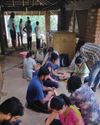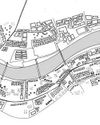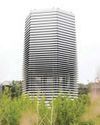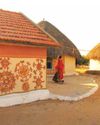Vikas Dilawari is a practicing conservation architect with more than two and a half decades of experience exclusively in the field of conservation, with scales ranging from urbanism to architecture. He has a double masters in conservation from School of Planning and Architecture, New Delhi, and from the University of York. He was the Head of Department of Conservation at Kamla Raheja Vidyanidhi Institute for Architecture, Mumbai, from its inception in 2007 to 2014. Dilawari has lectured and written extensively on the subject of conservation, nationally and internationally.

Where are our cities heading?
Taking the case of Mumbai, Vikas Dilawari sheds light on the current trends in construction. “A good city is a harmonious blend of public landmarks, residential grain, land use, good quality public and private spaces, and efficient infrastructure.” Mumbai had been the finest city the East of Switzerland in the 19th century, as it exemplified these qualities. Both 19th and 20th century buildings were planned sensitively and have been integrated well with the city and have contributed to become its heritage. Mumbai was the first city to have heritage legislation. However, currently the government is not keen on conservation and neither do builders nor residents welcome it.
“If today’s architecture can become the heritage of tomorrow, then you can certainly think about erasing some of the past.”
This story is from the April 2017 edition of Indian Architect & Builder.
Start your 7-day Magzter GOLD free trial to access thousands of curated premium stories, and 9,000+ magazines and newspapers.
Already a subscriber ? Sign In
This story is from the April 2017 edition of Indian Architect & Builder.
Start your 7-day Magzter GOLD free trial to access thousands of curated premium stories, and 9,000+ magazines and newspapers.
Already a subscriber? Sign In

Interlacing Perspectives
‘Meraki-2019’ A visionary Seminar series presented by Dr.Baliram Hiray College of Architecture, Bandra(East), Mumbai.

Facilitating A Community Through Architectural Practice
The humble, self-designed, self-built and organically planned home built by the majority of the world population rarely gets appreciated and critiqued as a viable lesson in architectural design.

The Art Of Solving Problems Creatively
The practice of architecture is perhaps incomplete without the complement of a variety of other arts.

Upcycling towards a playful tomorrow
Play is like the middle child, often forgotten, and always taking a back seat. For young kids, play can simply be running around, armwrestling with friends, building sandcastles on the beach, or singing popular music tracks in the shower.

Balancing The Poetics And Pragmatism Of Everyday Design
Humanity is faced with an oxymoronic crisis. The crisis involves the earth, the environment, impending looms of climate change, deforestation, loss of species, dwindling resources etc.

Just Give Me Some Space: Discussions And Beyond
Just Give Me Some Space (JGMSS) is Suha Riyaz Khopatkar’s debut book that paints a portrait of the dynamic life of an architecture student.

The Next In Vernacular Architecture
Architecture has become a capitalist.

Rethinking The Future: Architecture And Its Education
“I want to be like animals, the bird makes a nest in one or two days, the rat digs a hole in a night, but intelligent humans like us spend 30 years to have a house, that’s wrong.” - Jon Jandai

Uniting The Human-Scale With The City-Scale
London-based architect Usman Haque is famed for his interactive architectural systems, and for his exploration of newer, more effective ways of creating human engagement and interaction through his designs. Indian Architect & Builder caught up with him, to quiz him on a variety of topics such as his journey as an architect, his inspirations and philosophies, architects using the digital revolution to their advantage, and more!

Framing spaces
Almost every architect also doubles as a photographer or at least an enthusiast.